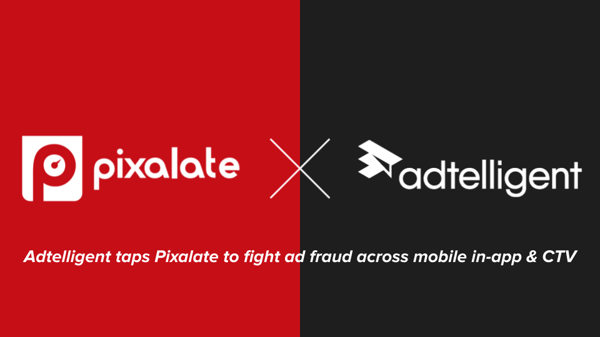
This week's review of ad fraud and quality in the digital advertising space.

Adtelligent this week announced it has begun a business relationship with Pixalate to combat ad fraud (invalid traffic, IVT). "Adtelligent has selected Pixalate to reduce risk and deliver high-quality traffic for ad campaigns across channels," including mobile in-app and Connected TV (CTV), according to the press release.

"Fraudsters infected nearly one million mobile devices with software that mimicked streaming-TV apps and collected revenue from unsuspecting advertisers," reported the Wall Street Journal, noting that the scheme "expos[es] vulnerabilities in a fast-growing corner of the digital ad market."

"While 30% of US smartphone users say they would pay for subscriptions rather than allow their apps track them, a nearly equal 31% say they would allow all apps to track them if it meant avoiding any fees," reported eMarketer.

"CTV ad rates for premium publishers are typically priced from two to six times national linear TV ad rates, and the biggest reason is scarcity," wrote Simulmedia CEO Dave Morgan in a MediaPost op-ed, noting that supply and demand patterns are helping drive this trend. "As we learned in the early days of mobile advertising, an imbalance of supply and demand is quickly filled with fraud and bots," the op-ed added, warning readers to watch out for ad fraud.

In a blog post, Apple noted that "all apps must use the AppTrackingTransparency framework to request the user’s permission to track them or to access their device's advertising identifier" starting April 26, 2021.
*By entering your email address and clicking Subscribe, you are agreeing to our Terms of Use and Privacy Policy.
These Stories on Weekly Recaps
*By entering your email address and clicking Subscribe, you are agreeing to our Terms of Use and Privacy Policy.

Disclaimer: The content of this page reflects Pixalate’s opinions with respect to the factors that Pixalate believes can be useful to the digital media industry. Any proprietary data shared is grounded in Pixalate’s proprietary technology and analytics, which Pixalate is continuously evaluating and updating. Any references to outside sources should not be construed as endorsements. Pixalate’s opinions are just that - opinion, not facts or guarantees.
Per the MRC, “'Fraud' is not intended to represent fraud as defined in various laws, statutes and ordinances or as conventionally used in U.S. Court or other legal proceedings, but rather a custom definition strictly for advertising measurement purposes. Also per the MRC, “‘Invalid Traffic’ is defined generally as traffic that does not meet certain ad serving quality or completeness criteria, or otherwise does not represent legitimate ad traffic that should be included in measurement counts. Among the reasons why ad traffic may be deemed invalid is it is a result of non-human traffic (spiders, bots, etc.), or activity designed to produce fraudulent traffic.”

